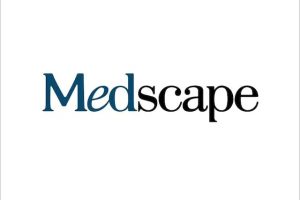Insulin Makers Testify on Capitol Hill Over Prices

WASHINGTON (Reuters) – Leaders of major insulin makers and pharmacy benefit managers (PBMs) traded blame for the life-saving drug’s high price on Wednesday while testifying at a U.S. Senate committee hearing on making it more affordable.
PBMs negotiate with drugmakers for rebates and lower fees on behalf of employers and other clients, and reimburse pharmacies for prescriptions they dispense. Both sides blame each other for high drug prices.
Testifying on Wednesday were the CEOs of major insulin manufacturers Eli Lilly and Co, Novo Nordisk, and Sanofi, which together control 90% of the U.S. market, and top PBM executives from CVS Health Corp, Cigna Group’s Express Scripts, and UnitedHealth Group Inc’s Optum RX, which control 80% of the prescription drug market.
“Why, in the richest country on Earth, do 1.3 million Americans ration insulin because of the cost? Why are 1 out of 4 Americans not able to afford the prescription drugs their doctors prescribe?” asked Senator Bernie Sanders, who chairs the Senate Health, Education, Labor, and Pensions (HELP) Committee.
The Lilly, Novo Nordisk, and Sanofi CEOs all said drugmakers pay substantial rebates aimed at lowering costs but that PBMs and insurers are incentivized to choose drugs with higher prices because they lead to larger rebates.
“Higher list prices allow for higher fees and rebates, which can increase patients out of pocket costs while benefiting employers, insurance companies and people who don’t use medicines,” Eli Lilly CEO David Ricks said.
PBM executives said manufacturers alone set the drug prices and abuse patent protections to stifle competition. Drug costs would be even higher without the rebates that PBMs negotiate for their customers, Optum Rx CEO Heather Cianfrocco said.
“They count on us to be a counterweight to the substantial market power of manufacturers, which have the sole discretion in setting and raising prices for their products,” she said.
The Lilly, Novo Nordisk, and Sanofi CEOs pointed to their companies cutting list prices by more than 70% for some insulin products in March and said they hoped to provide insulin to more customers a year from now.
The cuts could help around 2 million people pay for insulin. Although many people, including some 3.3 million on Medicare, pay $35 a month or less, about 1-in-5 with private insurance and the 17% of insulin users who are uninsured stand to benefit.
Uninsured people often have to pay full list prices, an average of $900 a month, forcing many to ration or skip doses.
In response to a question from Sanders, the pharmaceutical executives all committed to keep their newest insulin available to patients at $35 a month or less.
(Reporting by Ahmed Aboulenein in Washington; Additional Reporting by Bhanvi Satija in Bengaluru; Editing by Shri Navaratnam and Stephen Coates)
Source: Read Full Article




